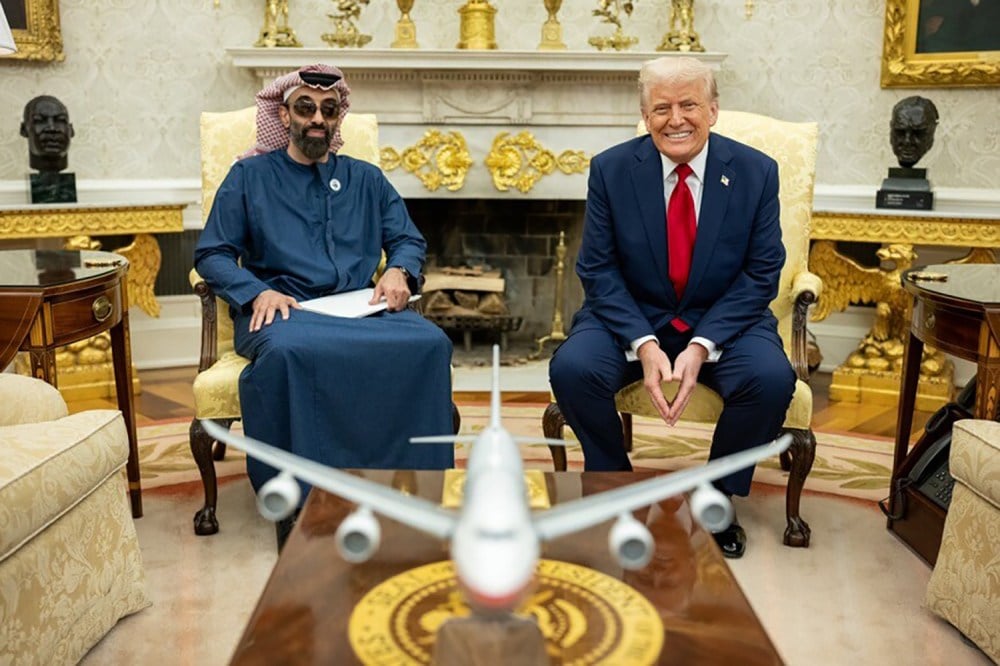
Trump Administration Navigates AI, Diplomacy, and Domestic Challenges
The week has been a whirlwind of activity, both domestically and internationally, for the Trump administration. From high-level meetings with foreign dignitaries to addressing critical issues like the war in Ukraine and border security, the White House has been a hub of intense activity. This Situation Report offers a comprehensive overview of the key events and developments shaping the current political landscape. We delve into the complexities of international relations, technological advancements, and internal policy decisions, providing a nuanced perspective on the challenges and opportunities facing the nation.
This includes a focus on the intricate balance of power, the pursuit of technological dominance, and the ever-present need to address pressing domestic concerns. All were impacting The Trump administration, with many carryovers such as AI coming from the Biden term. This is while navigating a world stage fraught with conflict and uncertainty, the administration is simultaneously grappling with internal debates over policy and priorities.
The administration also seeks to chart a course that reflects its vision for America’s role in the world. The following sections will detail how these dynamic elements interact against such complexity. The goal is offering insight into the multifaceted nature of governing in the 21st century.
It’s clear the U.S. is actively shaping the future of technology. The discussions and investments are happening at the highest levels. Also with continued engagement with international partners. The stakes of the administration are high, as the outcome will undoubtedly the global landscape for years to come.
UAE National Security Advisor Visits White House
A significant, yet relatively under-the-radar, event occurred this week at the White House. U.S. President Donald Trump hosted Sheikh Tahnoon bin Zayed Al Nahyan, the United Arab Emirates’ national security advisor, for a banquet dinner. This meeting, not listed on Trump’s public schedule, underscored the enduring partnership between the two nations. Discussions centered on strengthening ties, promoting peace and security in the Middle East, and exploring avenues for enhanced economic and technological collaboration.
Sheikh Tahnoon’s influence extends across national security, finance, and technology, making him a key figure in the UAE’s strategic decision-making. Artificial intelligence (AI) was a prominent topic, reflecting the UAE’s ambitious pursuit of technological leadership. The UAE has been actively investing in AI, forging partnerships with both Washington and Silicon Valley. This includes high, previous, and continues investments in companies and projects.
The meeting also highlighted the commitment of both countries to fostering innovation and leveraging technology for mutual benefit. The discussions around AI reflect a broader trend of nations recognizing the transformative potential of this technology. They are increasingly focusing on its strategic implications, and how it will become a key component of various factors. Many factors including, global power dynamics and economic competitiveness, for years to come.
The outcomes of these discussions will likely shape the future trajectory of U.S.-UAE relations. This also includes the broader landscape of AI development and deployment, with implications for both national security and economic prosperity.
AI and the “Diffusion Rule”
While the White House meeting with the UAE focused on positive collaboration, a potentially contentious issue lurked in the background: the “AI diffusion rule.” Proposed by the previous Biden administration, this rule categorizes countries into tiers based on their access to advanced U.S. semiconductor chips. The UAE, falling into the second tier, faces stricter licensing requirements for acquiring these critical components for AI development.
U.S. tech giants, including Nvidia and Microsoft, have criticized the rule, arguing it could harm American allies like the UAE. This creates an opening for the Trump administration to potentially revise or even abandon the rule. Experts suggest that Sheikh Tahnoon likely sought to negotiate a balance between U.S. security concerns and the UAE’s ambitions in the AI sector. The rule’s implementation rests with the Trump administration, presenting an opportunity for lobbying and potential policy shifts.
The situation highlights the delicate balance between national security and fostering innovation, particularly in the rapidly evolving field of AI. The decisions made regarding the diffusion rule will have far-reaching consequences, impacting not only U.S.-UAE relations but also the global landscape of AI development and competition, including who may rise as a top competitor.
The coming weeks and months will be crucial in determining the fate of the diffusion rule. this impacting us all. The implications for both international relations and the tech industry will be important for everyone globally.
The China Conundrum in AI Competition
A key argument against the “AI diffusion rule” is that it could push countries like the UAE to seek alternatives, particularly from China. The UAE has historically maintained ties with both the East and West, and this extends to the technology sector. While the Biden administration worked to curb China’s AI rise, concerns remain about the UAE’s exposure to Chinese tech. This including some U.S. lawmakers voicing worries about potential technology transfer. While how and if things would end up in Chinese jurisdiction.
The UAE has emphasized its preference for the U.S. as its AI partner. However, experts note that the Emiratis haven’t completely severed ties with China. The Gulf region is poised to become a battleground for AI dominance between China and the United States, so stakes are high.
This highlights how China is playing a very long game, and have been for awhile. The dynamics in the Gulf exemplify the broader global competition in the AI sector. They underscore the strategic importance of securing partnerships and fostering innovation ecosystems.
The future will see a lot of the power in the world determined from these discussions. How they play out, are yet to be really seen. These could bring along intense competition. For all of these nations, it leaves a lot of questions.
Domestic Challenges: Ukraine, Turkey, and Border Security
The Trump administration faces several pressing domestic and international challenges. The termination of a U.S.-funded program tracking alleged Russian war crimes in Ukraine, including the abduction of children, has raised concerns. Bipartisan lawmakers worry that a database containing information on the children may have been deleted, potentially hindering efforts to reunite them with their families. This comes amid ongoing peace talks between Ukraine and Russia, adding complexity to the situation.
In Turkey, the arrest of Istanbul Mayor Ekrem Imamoglu, President Erdogan’s main political rival, has sparked mass protests. The charges against Imamoglu are viewed by many as politically motivated, raising concerns about Turkey’s democratic trajectory and its relationship with NATO.
Meanwhile, at the U.S.-Mexico border, the Trump administration is reportedly considering establishing a military-controlled buffer zone to address illegal crossings. This plan, involving the temporary detention of migrants by U.S. troops, could face legal challenges. These actions are very complicated. The administration is really cracking down.
These issues underscores how important things are. It shows many challenging things going on. It’s really bringing up a lot of complexities.
Conclusion: A Complex Web of Interconnected Issues
The Trump administration is navigating a complex web of interconnected issues, both domestically and internationally. The pursuit of AI dominance, diplomatic relations with key allies, and addressing pressing concerns like the war in Ukraine and border security demand a multifaceted approach. As stated earlier, the decisions made in the coming weeks and months will have far-reaching consequences, shaping the future of U.S. foreign policy, technological leadership, and domestic stability. The administration’s ability to balance competing priorities, navigate international tensions, and address internal challenges will be crucial in determining its success. From fostering innovation to upholding human rights, the path forward requires careful consideration and strategic action. It’s a lot for one administration to take on.
This will not be a simple one. Challenges are both diverse and interconnected. This is requiring a comprehensive and adaptable approach. The administration is a delicate one. The balance of power is imperative. All of this being the pursuit of technological advancement.
The challenges highlight the ongoing need. Commitment to democratic values and human rights remains paramount. This ensuring a stable peaceful future is very crucial, for us all.
The coming period will be critical. This in shaping both the domestic and international landscape. This will also affect many aspects of life. There are global implications and ramifications. We will see if the steps being taken will be enough.
The world watches as the Trump Administration confronts these multi-faceted issues. Time will tell how effectively they will overcome these hurdles and keep the world peaceful.












